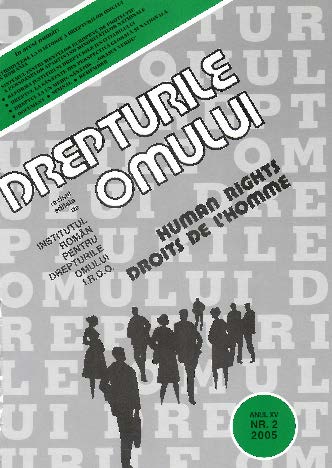Globalizarea și statul național
Globalization and the national State
Author(s): Maria Cristina MandaSubject(s): Developing nations, Social development, Economic development, Globalization
Published by: Institutul Român pentru Drepturile Omului
Keywords: Nation-State; decentralization; national interest; globalization;
Summary/Abstract: It is undeniable that the Nation-State, as an expression of a changing modernism, is changing its powers. Here are several symptoms of this phenomenon: partial yielding of sovereignty in favour of integration, increasing decentralization and transfer of powers to the local authorities, losing control on the globalized economy, accepting to harmonize the national legislation to that of other countries, dependency upon the decisions or recommendations made by the big financial and bank bodies and so on. The national interest is maintained and amplified under the circumstances of global modernism. Let us assume that the changes affecting the competencies of the State induce a diminution of the latter down to the form of a “minimal State”. Nevertheless, the inhabitants of a territory continue to have the same aspirations of security, welfare, freedom and equity, with or without a powerful State. All structures of power, considered as being security, production, finances and knowledge have been deviated towards the new scheme of global networks. However, a society will only have access to the networks of globalization to the extent these networks pass through its territory, which is similar to the interest of the little town that the railway should pass through it and have a station. Nowadays, States preparing themselves to become part of the general globalization phenomenon multiply by all possible means the networks and the nodes.
Journal: Drepturile omului
- Issue Year: 2005
- Issue No: 2
- Page Range: 36-40
- Page Count: 5
- Language: Romanian

